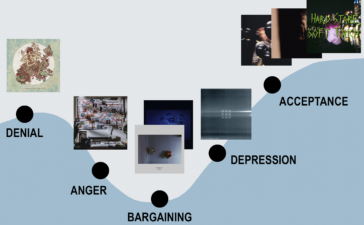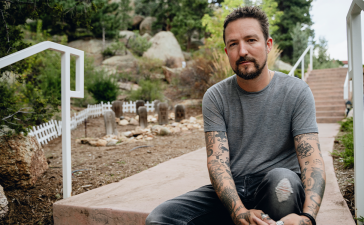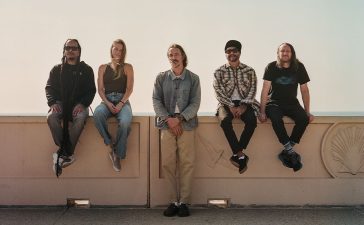“I like to just be able to type and not have to worry about my face,” Jack Antonoff admits. Fresh off a Reddit AMA, he comes to BLUNT in one of the many calls he’s been doing as part of the press for his recent Bleachers album, Take the Sadness Out of Saturday Night.
It’s both bizarre and comforting to hear the prestigious musician and producer succumb to the Zoom call insecurities of the ordinary man. And yet, it shouldn’t be – Antonoff’s superpower has always been to create music that makes us all feel connected – not only to him, but to each other as well.
Take the Sadness Out of Saturday Night follows suit, holding up a tarnished mirror to the imperfect experience of being human and ever failing to get to the side where the grass is greener. As he grapples with understanding why he can never fully attain the things he wants, Antonoff offers up a sobering reflection on our universal tendency to fumble just before we get to the finish line.
“It’s a breakthrough,” he states. “It’s about reaching a point in your life where you see the other side of something and you see all of the joy and hope that could be there, and you can’t fucking do it. You can’t fucking walk through that door – something’s not right. And then you can either get very angry, or you can get laser-focused on how to change that. And I got into that place where I was like, ‘Okay, what systems do I have in place that make it impossible for me to just grab this thing I so clearly want?’ That could be in relationships or in work – it could be anything.”
For Antonoff, the frustrations he expresses on the record have been sitting with him since his coming of age in New Jersey. Growing up desperately wanting to escape to the bigger and better life waiting for him outside the state he lived in, Antonoff exorcises the desire for something more that tormented him in his younger years, both in his storytelling and the album’s sound (see: Bruce Springsteen’s feature on ‘Chinatown’).
It begs the question: why would he want to commemorate a place that he once so intently wanted to leave? He responds to the prompt without hesitation.
“That feeling of wanting to get out of a place or wanting more is essentially hope, you know? It’s not believing that you have everything. How boring must it be to think you have everything, and that there’s nothing more? That sounds like the end of growth – the end of everything. I’ve just become more and more enamoured with that feeling of, ‘What the fuck else is out there?’ I still have it, and I always want it.
“New Jersey is a place that makes me access it immediately when I’m there… You get to a point where you may have travelled the world – you may have done this, you may have done that – but that’s not a thing you ever want to let go of. And so I don’t.”







